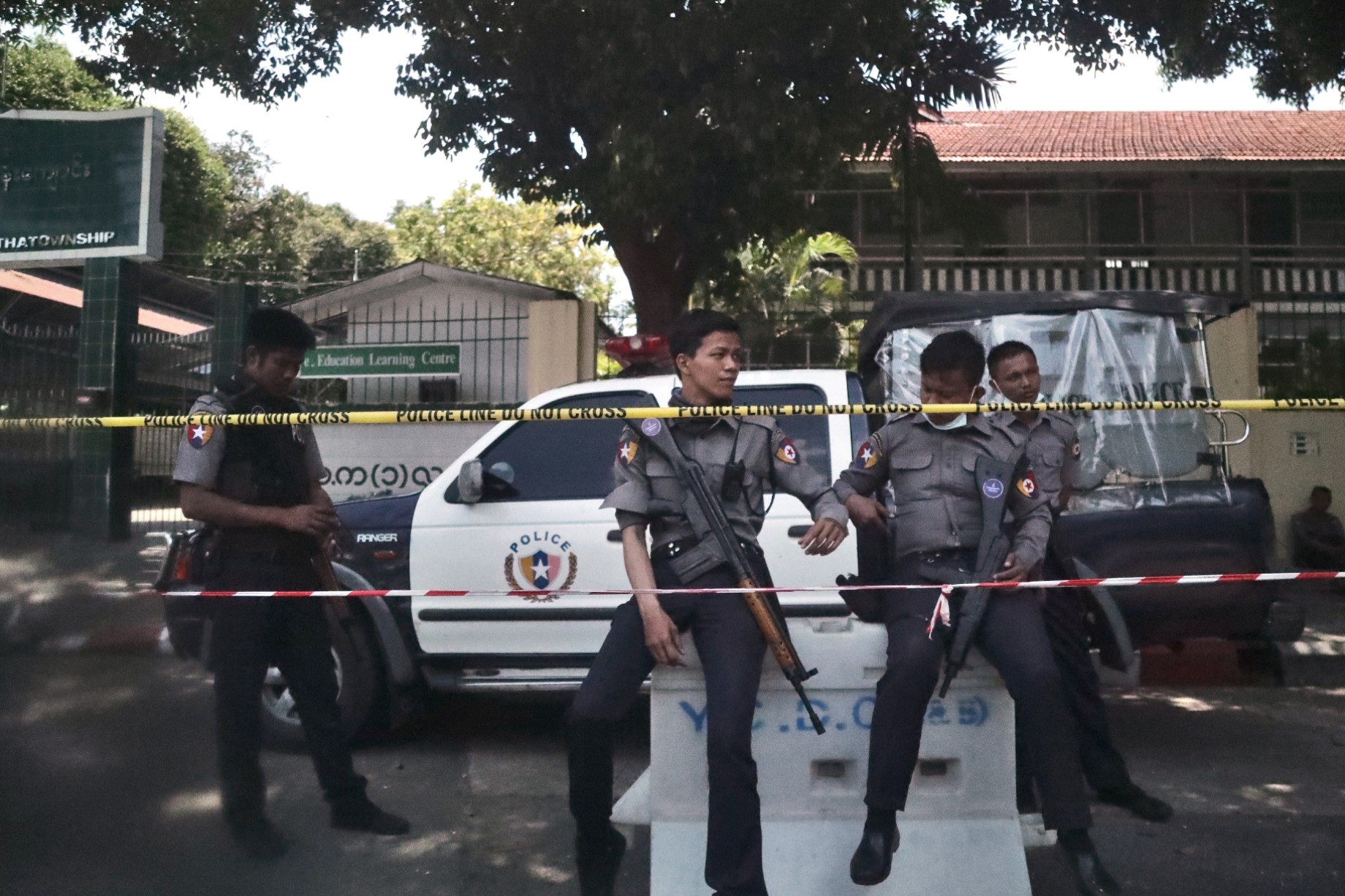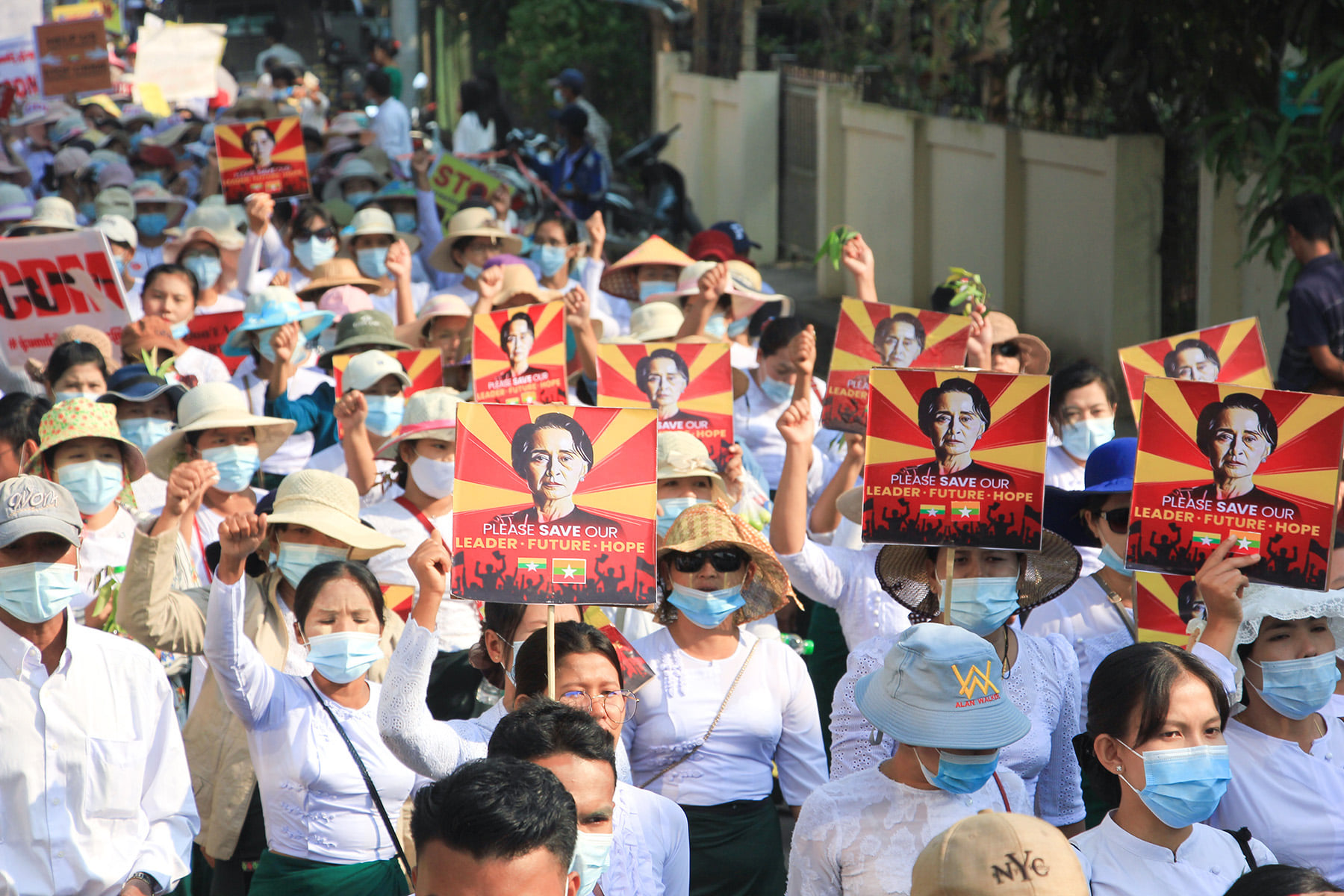
A decision by Myanmar’s junta to reopen schools closed since July due to the third wave of the Covid-19 pandemic has been widely criticized by educators and parents who see the move as likely to fail under the current political circumstances.
A plan to introduce a new 14-week curriculum to cover lessons missed since schools were closed on July 9 was unlikely to succeed because of growing opposition to the coup regime’s rule, according to a teacher taking part in the Civil Disobedience Movement (CDM).
“I can say with full certainty that this plan to reopen schools will fail. You can see that more and more high school students from all over the country have begun to take part in the revolution,” said the teacher, who is also an information officer for the Basic Education General Strike Committee.
He added that in addition to low attendance rates, the reopening would also be affected by lower academic standards resulting from the regime’s hasty efforts to reestablish control over the education system.
On Saturday, a joint statement was released by 47 student unions around the country condemning the reopening as an attempt by the junta to implement a substandard education system as part of its program to assert military rule.
In major cities such as Yangon and Mandalay, the November 1 reopening was greeted mostly with indifference, as only a handful of students showed up for classes that began on Monday.
“To be honest, I don’t see any reason to think too much about whether to send my kid to school right now. I don’t care if the schools have reopened. I’m not letting my child learn under a dictatorship,” said Khant Lu Aung, the father of a high school student in Mandalay.

Even those who felt that it was important to keep disruptions to children’s education to a minimum said that they didn’t think that the reopening was necessarily done with students’ best interests in mind.
“We can’t just trust that they are reopening the schools for the sake of the children’s learning and future. Therefore, although I believe that there should be continuous learning for the students, I do not believe that they did this for the sake of the children’s future,” said Nilar Win, a member of the central executive committee of the Myanmar Teachers’ Federation.
She added that she also had concerns about the lack of measures taken to protect students from the spread of Covid-19 and noted that many schools are currently understaffed due to the firing and arrest of teachers taking part in the CDM.
On Sunday, the junta-appointed director general of the basic education department, Kywar Swar Thwin, appeared on the state-run television channel MRTV to explain the regime’s plans for the remaining 14 weeks of the academic year.
He said that lessons had been recalibrated to allow students to complete the curriculum in time for exams, which are to be held in the third week of February, in accordance with the normal academic calendar.
He added, however, that schools in 46 townships in Kachin, Kayah, Kayin, Chin and Rakhine states and Sagaing, Magway and Mandalay regions would remain closed due to “Covid-19 prevention measures”. Many of the townships in question are currently facing major military offensives against anti-regime resistance forces.
According to figures released by the junta’s information department on Tuesday, a total of 65,161 students attended basic education schools, private schools, and monastery schools in eight townships in the Naypyitaw Union Territory on Monday. That number increased to 101,221 the following day, the figures showed.
Schools were previously reopened on June 1 after four months of political instability resulting from the military takeover in February. Attendance remained low until the closure a little over a month later due to concerns about students’ safety amid ongoing conflict in many parts of the country.
During this brief period, many students could also be seen protesting against the regime, which has faced growing resistance to its rule since seizing power on February 1.
